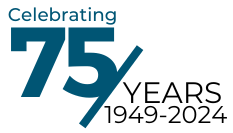Have you been thinking about retiring? Before you give your two weeks notice, there are many important decisions you will need to think about. Creating a plan for your finances when you retire might take you a lot of time. Here is a timeline of what you should be doing to maximize your earnings during retirement.
Figure Out What Your Means Will Be
A general rule of thumb is to expect to live off of 80 percent of your current income. If you have a pension plan and know how much of your current salary you will be paid, this is an easy step for you. For those of you who plan on living based on earnings through a Roth IRA or 401K account, you may want to seek some help from a financial advisor. Regardless, you should consider how you will cut costs and stop paying for services you barely use.
Also figure out whether or not you will need to take on part-time work to get by. Some employers offer their best employees an opportunity to freelance or stay on as a consultant, which allows them to work on an as needed basis. Talk to your employer when you consider retiring to see if there is an opportunity to work in a role that is not as demanding.
Pay Off Any Debt
While you are still working, try to pay off as much debt as you possibly can. Waiting will only make things more difficult for you during retirement. If you can’t afford to pay off any bills or debt entirely, calculate a percentage that you want to take off. Figure out which debt is your biggest burden and try to eliminate it before you retire.
Health Care
While your employer may cover most of your doctor visits and prescriptions, you might be in for quite a surprise when your plan is finished. There is a chance that your health care costs in retirement will be significantly higher than they are now. If you are age 65 or older, Medicare will cost you an average of $3,068, according to AARP.
If you are under the age of 65 and will not have health insurance after you retire, you will need to see if you can qualify for special enrollment on healthcare.gov. Filling out forms will help you figure out whether you qualify for Medicaid or a private plan that has lower out-of-pocket costs.
Make Sure You Have an Emergency Fund
In retirement, this is even more important to have. An extended hospital stay or a need for a new car can cause even more financial stress in retirement. Try to save for about eight to twelve months of expenses to cover emergencies. The account you put your emergency fund in should be fluid, and pay interest each month. Be sure that you are able to convert the fund into cash quickly so you do not have to wait for your money.
Sponsored by: Fellowes

